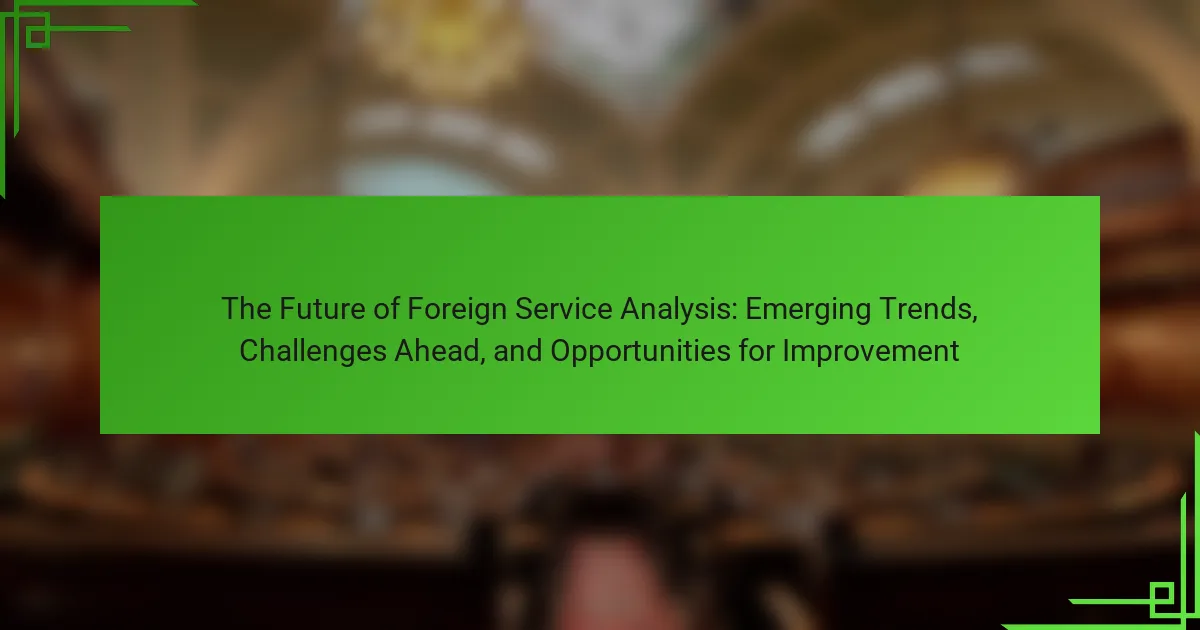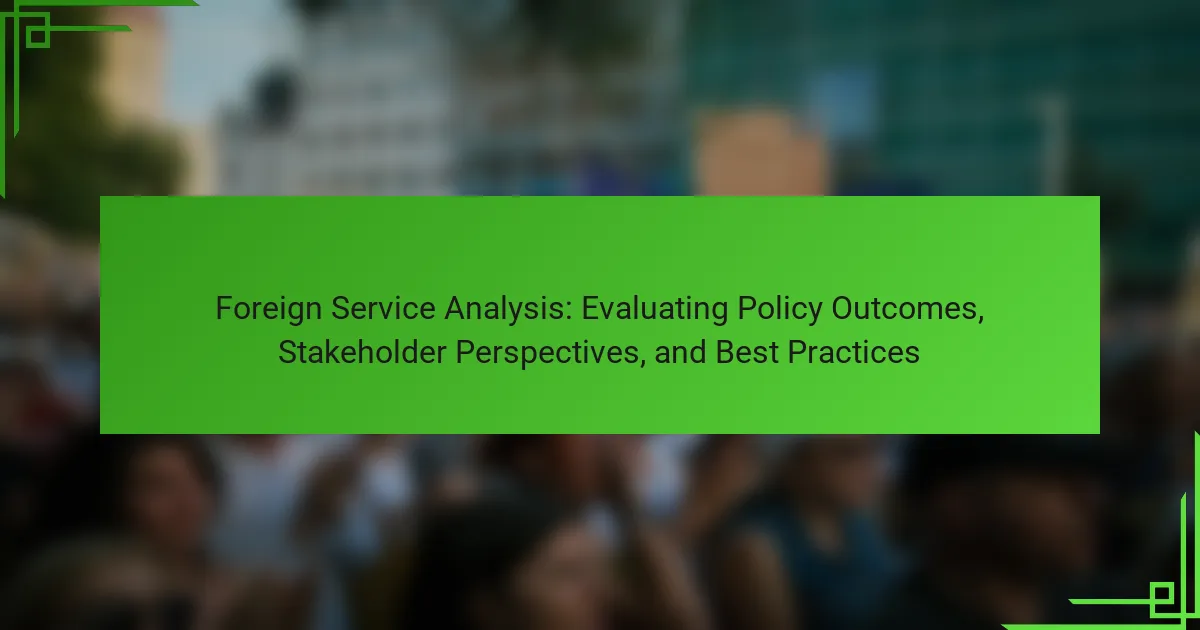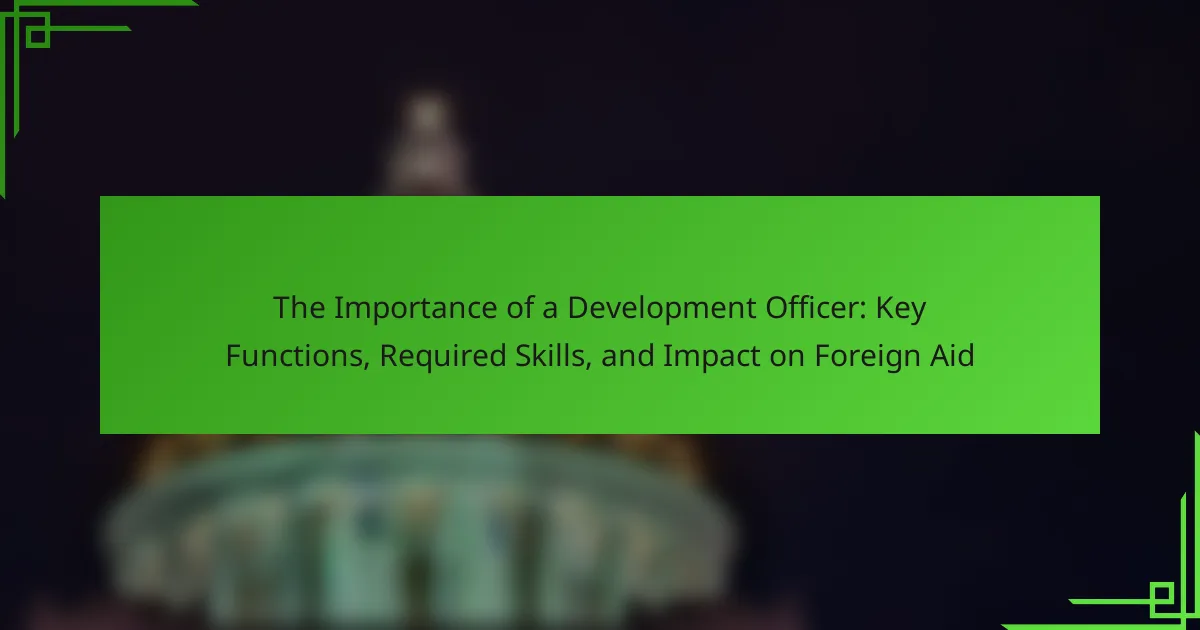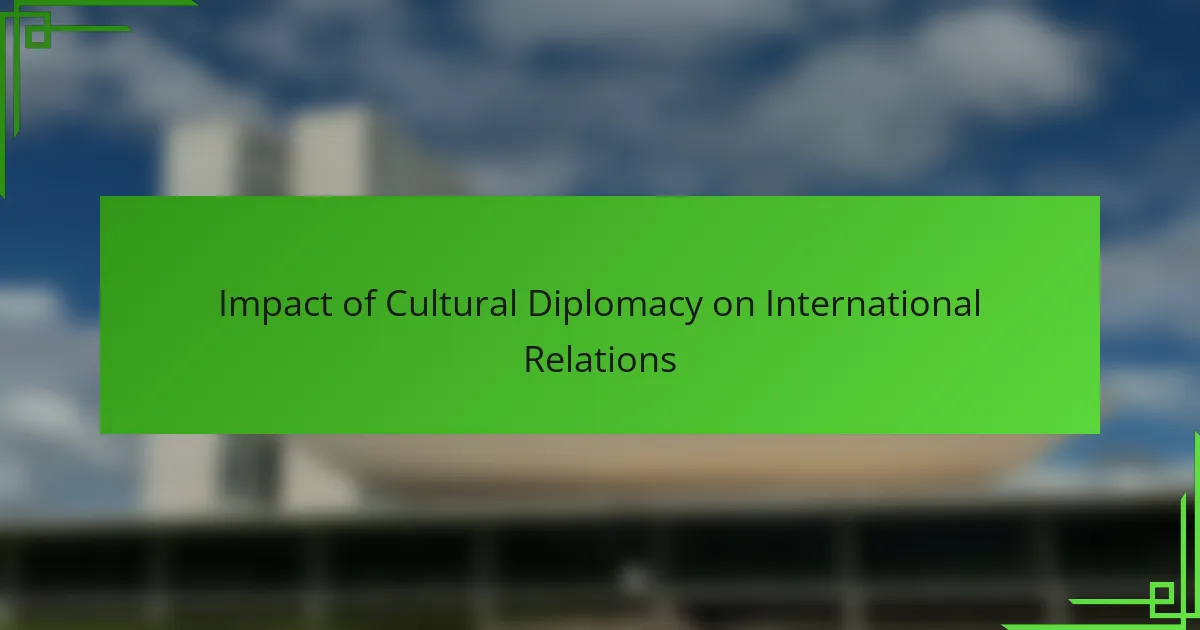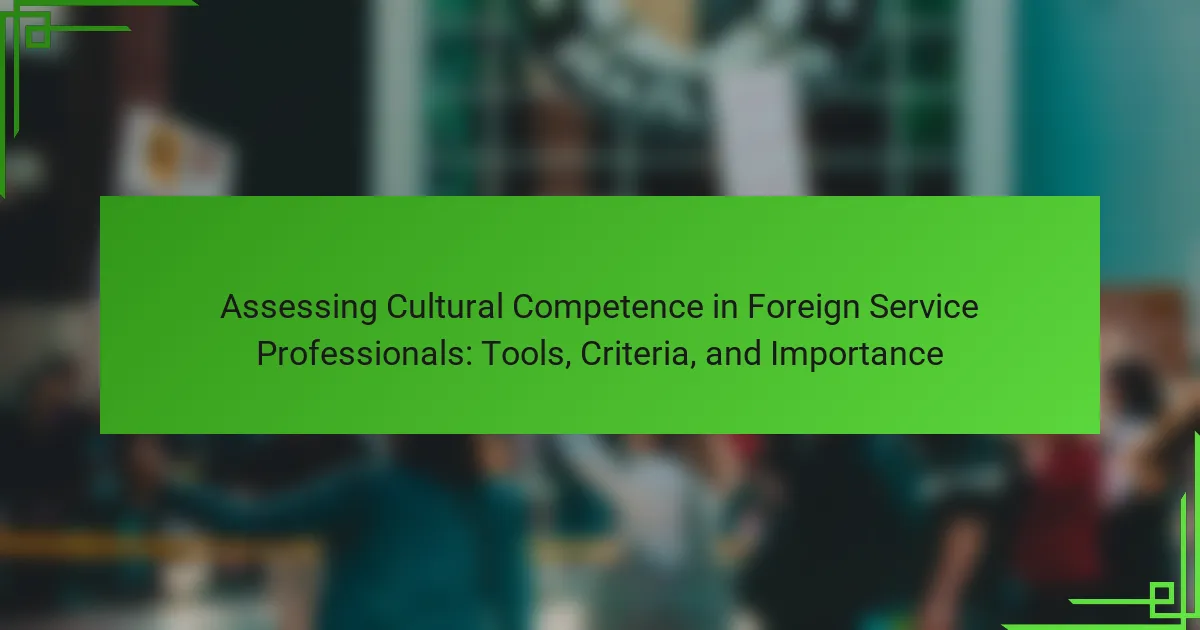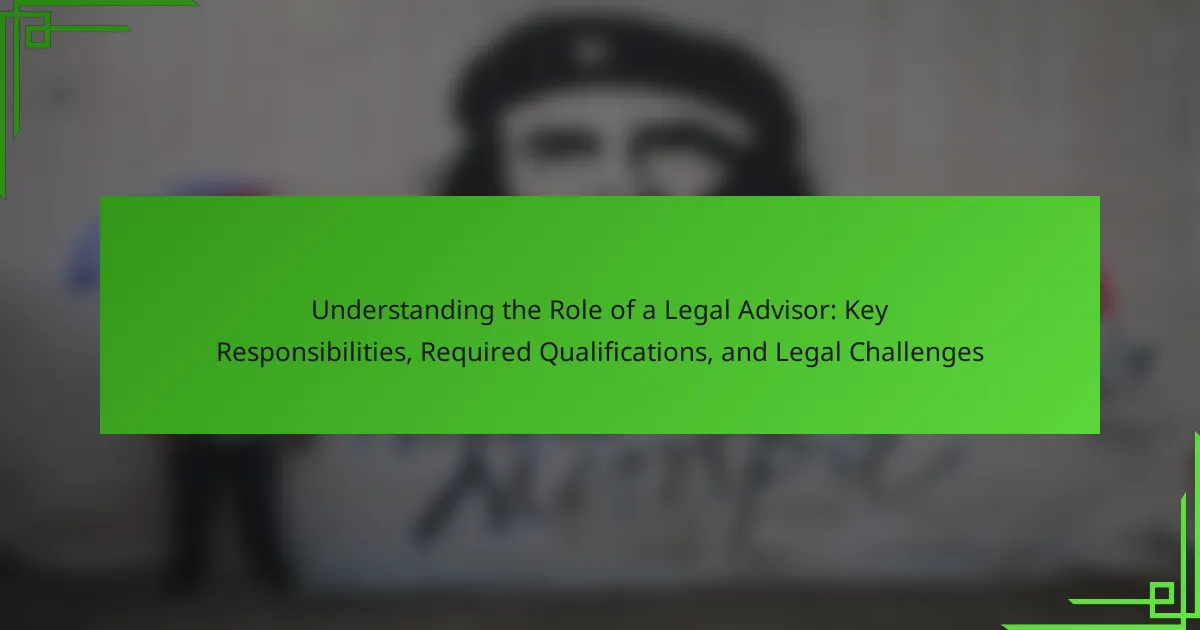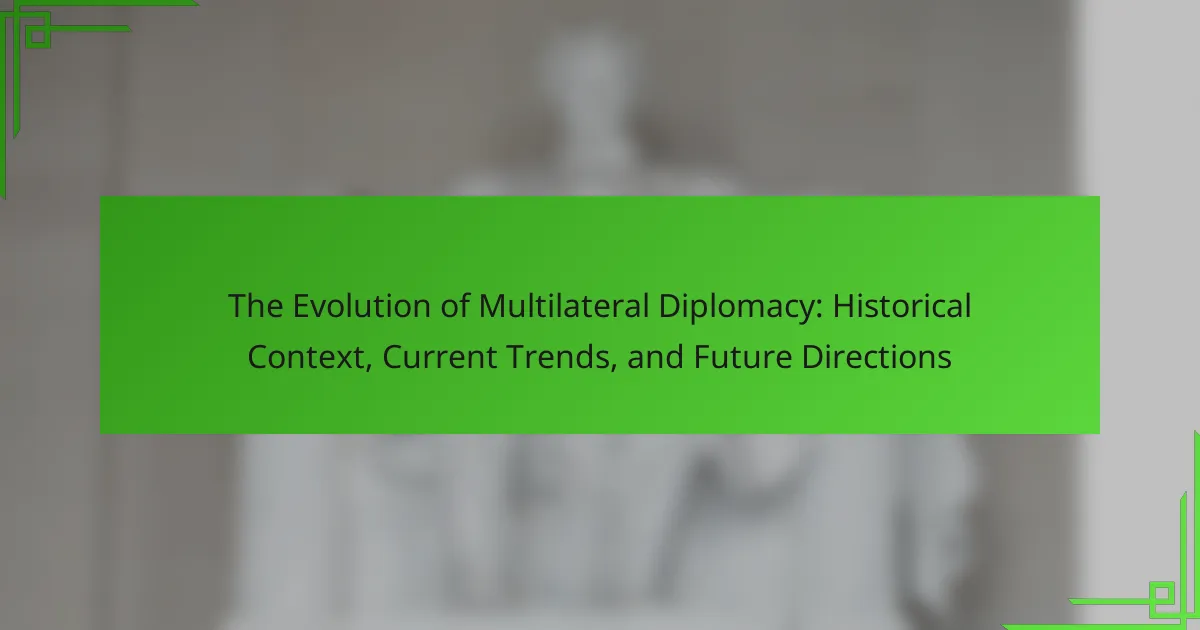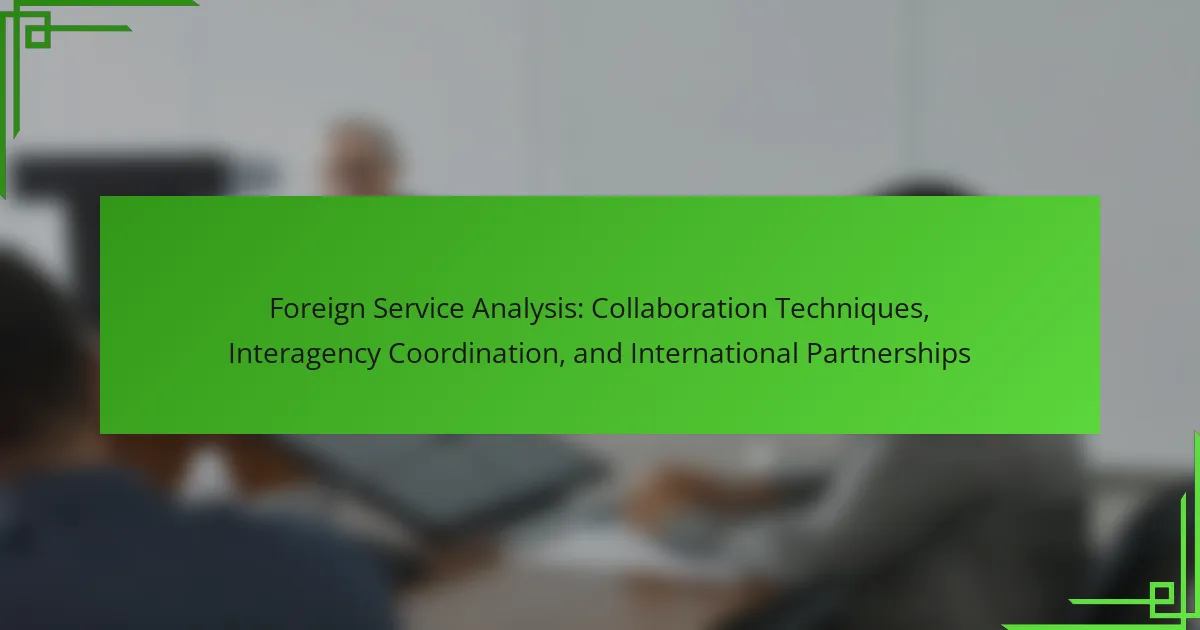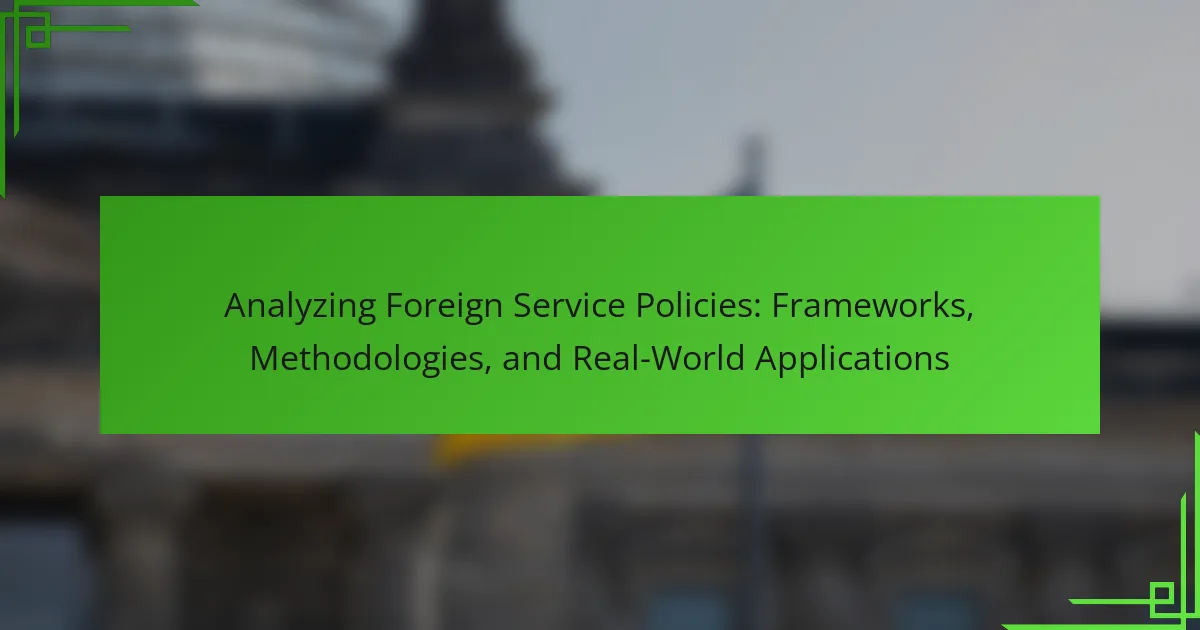The article focuses on the future of foreign service analysis, highlighting the impact of technological advancements such as automation and artificial intelligence on data processing and analysis. It addresses the challenges faced by analysts, including the complexity of global political dynamics, data overload, and the need for objectivity amid biases. Furthermore, the article explores opportunities…
Author: Miranda Ashcroft
Foreign Service Analysis: Evaluating Policy Outcomes, Stakeholder Perspectives, and Best Practices
Foreign Service Analysis is the systematic evaluation of foreign policy outcomes, focusing on the effectiveness of diplomatic strategies and actions. This process involves assessing various stakeholder perspectives and their influence on policy decisions, employing both qualitative and quantitative methods to gather relevant data. Analysts utilize case studies, reports, and interviews to inform future policy and…
The Importance of a Development Officer: Key Functions, Required Skills, and Impact on Foreign Aid
A Development Officer plays a crucial role in securing funding for projects by planning and implementing effective strategies. This position involves identifying potential donors, building relationships with stakeholders, and conducting research to uncover funding opportunities. Key responsibilities include preparing grant proposals, monitoring project progress, and ensuring compliance with donor requirements. Essential skills for a Development…
Impact of Cultural Diplomacy on International Relations
Cultural diplomacy is a strategic tool in international relations that fosters mutual understanding and cooperation among nations through cultural exchanges, art, and education. This approach enhances soft power, allowing countries to influence each other positively without coercion. The article examines the historical impact of cultural diplomacy, highlighting initiatives such as the Fulbright Scholarship during the…
Assessing Cultural Competence in Foreign Service Professionals: Tools, Criteria, and Importance
Cultural competence in foreign service professionals refers to the ability to effectively engage with individuals from various cultural backgrounds, which includes understanding cultural differences, values, and communication styles. This article examines the importance of cultural competence in enhancing diplomatic effectiveness and improving international relations. Key evaluation criteria for cultural competence include knowledge of cultural differences,…
Understanding the Role of a Legal Advisor: Key Responsibilities, Required Qualifications, and Legal Challenges
A Legal Advisor is a professional who provides expert legal guidance to clients by interpreting relevant laws and regulations. They are responsible for drafting legal documents, representing clients in negotiations and legal proceedings, and advising on compliance and risk management. To become a Legal Advisor, individuals must obtain a bachelor’s degree in law, followed by…
Insights into the Security Officer Role: Key Responsibilities, Skills Required, and Risk Management
The security officer is a professional responsible for maintaining safety and security within a designated area. Key responsibilities include monitoring premises, conducting regular patrols, enforcing rules, reporting suspicious activities, and assisting in emergencies. Security officers manage risks through thorough assessments, surveillance, and policy enforcement, while also providing training on safety protocols. Required qualifications typically include…
The Evolution of Multilateral Diplomacy: Historical Context, Current Trends, and Future Directions
Multilateral diplomacy is the process in which multiple countries engage in dialogue and negotiation to tackle global challenges. This approach is crucial for fostering international cooperation and collective decision-making on issues such as climate change, security threats, and trade disputes. The article explores the historical context of multilateral diplomacy, current trends emphasizing climate action, global…
Foreign Service Analysis: Collaboration Techniques, Interagency Coordination, and International Partnerships
Foreign Service Analysis involves the systematic examination of diplomatic activities and international relations, emphasizing the effectiveness of foreign policy and government actions overseas. The article explores key components such as collaboration techniques, interagency coordination, and international partnerships essential for enhancing diplomatic strategies. It highlights the use of case studies and statistical data, with examples from…
Analyzing Foreign Service Policies: Frameworks, Methodologies, and Real-World Applications
Foreign Service Policies are essential guidelines that dictate the operations of diplomatic missions, outlining the roles and responsibilities of foreign service personnel while ensuring the delivery of consistent diplomatic services. The article explores various analytical frameworks used to assess these policies, including the Rational Actor Model, Bureaucratic Politics Model, Constructivist Approach, and Policy Analysis Framework….
